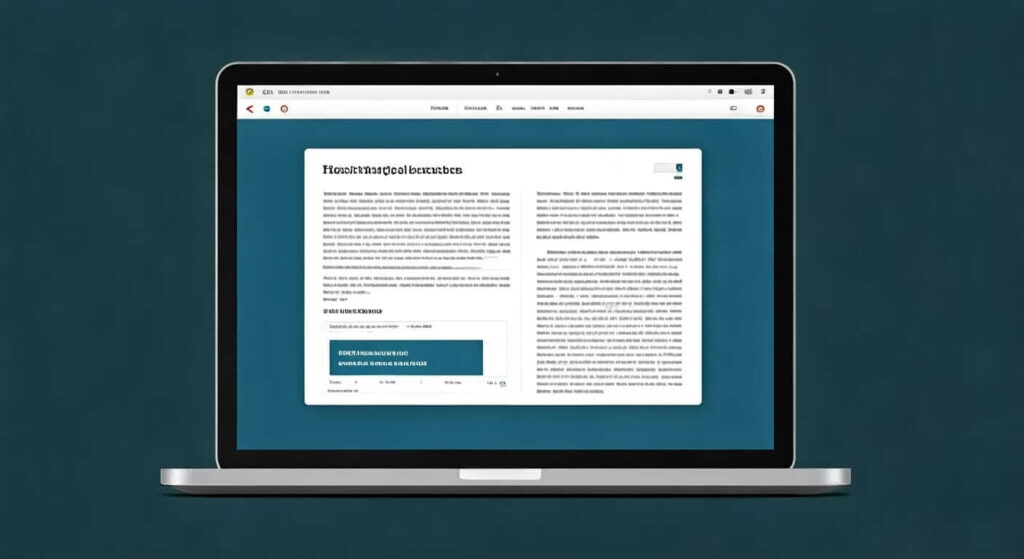Deciding whether to add a community forum to your website is an important step for any site owner who wants to build a thriving online presence. Community forums offer unique ways for users to share knowledge, provide support, and drive authentic engagement.

As the demand for interactive spaces continues to increase, many are asking if a discussion board could enhance their project, brand, or business. Before taking this step, it’s important to understand not only the advantages and challenges but also the legal and liability concerns involved in hosting community forums.
Community forums can turn a regular website into a lively conversation hub. In fact, research from Vanilla Forums shows that 88% of people feel that access to a community improved their customer experience.
Visitors who contribute to conversations or seek advice start to feel connected to both your website and its user base. For businesses, hobby groups, or bloggers, this sense of belonging can create brand loyalty and boost frequent visits. Forums also make it easier for audiences to form direct relationships with content creators, which sets you apart in a crowded online field.
A well-managed forum grows into a living FAQ or support hub. As members discuss questions and share advice, your site accumulates relevant information. Over time, forums can lower direct customer questions since members help each other before support tickets even get submitted.
The discussions become indexed by search engines, turning community posts into a natural draw for curious web searchers. Forums contribute content full of relevant long-tail keywords (“best budget web hosting Canada”) that bring targeted audiences through organic search.
For any website—whether it’s an e-commerce shop, educational outlet, or creative project—forums support search engine optimization (SEO) naturally by providing exactly the content searchers want.
Technical note: Search engines use software called web crawlers to scan the text and structure of every site, including forum categories, threads, and replies. A clear forum structure—using logical URLs and well-labelled sections—helps crawlers index your content and makes it easier to find through search engines. It’s similar to laying out neat roads in a neighbourhood so guests never get lost.
A forum is more than a chat room; it’s a powerful way to bring in new visitors. Search engines, including Google, rank sites higher if they notice regular new content. Forum posts, questions, and answers show that your site is active and helpful.
Forums also support long-tail keyword coverage well. For example, if people repeatedly ask “How do I fix a 404 error in WordPress?” those detailed posts help your site attract visitors making similar searches–something search engines value highly. Consistent new activity within your forum reassures algorithms that people find your content useful and current.
Community forums thrive on member participation. On tech support sites, many answers come from users rather than company staff. This doesn’t just reduce your support workload; it builds a sense of ownership in your user base. Over time, expert community members emerge—helping newcomers, solving problems, and even moderating discussions.

This kind of peer-driven help works for educational projects, hobby communities, health resources, and more. Forums let strangers become friends and collaborators, turning your site into something greater than its original purpose.
Unlike fast-moving platforms like Facebook or Twitter, forums allow detailed conversations to remain accessible for months or even years, acting as a permanent knowledge bank.
Social media posts usually vanish down the feed within hours, while forum discussions are organized and easily referenced later. If you want a searchable collection of user wisdom rather than fleeting chatter, forums are much better suited.
For all their benefits, forums carry real ongoing challenges. One big one is thoughtful moderation. Most forum hosts say this is the most time-consuming aspect of forum management.

Moderation means keeping conversations civil, removing spam, and ensuring user guidelines are followed. Without this vigilance, trolls and bad actors can undermine your community’s tone. Forums need clear posting rules—think of these as your online “house rules”—so everyone knows what’s acceptable.
Helpful tools like spam filters or keyword alerts speed up moderation, but humans are still needed. Especially on larger forums, moderators are your best “gardeners,” weeding out harmful posts and maintaining a welcoming space.
Hosting a forum involves more moving parts than a basic blog. First, you’ll need forum software such as Vanilla, phpBB, or XenForo, which must be installed, configured, and updated regularly. As your forums grow busier, more hosting resources may be required, especially during popular debates or if images and files are being shared.
Regular database backups are essential; these help restore your community if something goes wrong. Keeping all forum components updated guards against security threats, which are more likely as more users join and interact.

Security can’t be ignored. Forums can accidentally host spam, malware, or even allow for phishing attempts. Using secure login methods and regularly patching your software are key, much like updating locks and windows to keep your house safe.
Forums may not grow on their own, even after a great launch. About 90% of forum users are “lurkers”—they read, but rarely post. Creating welcoming introductory threads, holding Q&A events, and showing appreciation for regular posters encourages more active participation.
Community-led topic ideas, “sticky” advice threads, and light competitions can keep energy high. Recognizing outstanding contributors—much like a small business highlighting its best customers—can make all members feel valued.

Not all websites can support a thriving forum. Communities grow best around shared interests that need discussion, such as gaming, health, academics, and hobbies. If your site is mostly static or doesn’t invite much user interaction, forums may struggle to attract posts. Before launching, ask whether your expected audience wants or needs to connect in this way.
Running a community forum gives your users a space to speak, but it also brings real legal obligations. Canadian law, along with other international standards, applies to forums and online communities, especially when it comes to user-generated content.
Site owners are responsible for removing illegal content, such as hate speech, defamation, copyright violations, or privacy breaches if they’re flagged. Courts have held that failure to act on reports about harmful postings can result in legal or financial consequences. For example, Canada’s Anti-Spam Legislation (CASL) applies to any unwanted promotional content or links shared within forums, even if posted by regular users.

If your website is accessible in the European Union, the General Data Protection Regulation (GDPR) also applies. This means that users must be clearly informed of how their data is stored and used, and they have the right to request deletion of their forum posts or personal data.
Whenever people post content (including text, images, or files), there’s a chance they might share copyrighted materials without permission. As the website host, you may be required to take down infringed material if asked by the rights-holder—or risk legal action.
Privacy is also a concern. Collecting user data (like email addresses or IP numbers) requires clear disclosure of your privacy policy. Users must consent to your collection and handling of data. Best practice includes providing an easy-to-understand privacy statement and a process for removing accounts or personal posts on request.
Defamation risks—having users post false or damaging claims about others—require a plan for fast review and removal if you are alerted. In Canada, both the person publishing and the site owner can potentially face defamation claims for unchecked harmful material.

To protect yourself and create a safe environment, write clear community guidelines (what’s allowed and not allowed) and require users to agree before joining. For legal strength, many forums include a “terms of use” agreement covering community rules, liability disclaimers, and procedures for reporting abusive or illegal content.
This document describes your rights to moderate posts and explains the circumstances under which you may remove content or suspend user accounts.
It’s helpful to regularly remind community members that posts express user opinions only and not those of the website itself. This kind of disclaimer helps limit your liability but does not eliminate responsibility to respond when notified about unlawful material.
If your forum covers sensitive topics or is likely to attract a diverse, international audience, it’s important to seek legal advice to adjust policies to your needs. Privacy and liability laws change often and can differ widely depending on where your users live.
Community forums offer powerful rewards: richer engagement, a self-sustaining support system, improved search rankings, and a living encyclopedia for your online community. At the same time, successful forums require careful planning, regular moderation, technical upkeep, and attention to legal responsibilities.
Ask yourself: Do your visitors want to interact? Do you have the resources—and the will—to manage both the technical and human side? If so, adding a forum might become your most valuable site feature, fostering trust and loyalty for years to come.
Just remember: Building a great forum is much like welcoming a group of chatty neighbours into your home. The possibilities are great, but you need to set boundaries and tend the space regularly to get the most benefit.




Copyright © 2022 - 2026. Tresseo. All rights reserved.